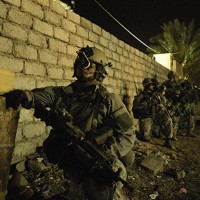Over the past several months, we have learned more about plans by the U.S. Special Operations Command to take on a greater role globally. As reported by Kim Dozier and others, U.S. special operations forces are working to build a global network of special operations forces in partner countries to meet a wide array of threats. U.S. special operations forces are also marketing themselves to policymakers as the “weapon of choice” after the drawdown in Afghanistan.
This push for greater prominence arrives at a time when special operations forces, long the bastard children of the U.S. military, are enjoying unprecedented prominence and esteem. Secretary of State Hillary Clinton even traveled to their headquarters in Tampa, Florida, last week to sing their praises.
For the next few weeks, though, I will be devoting a series of columns to the risks associated with a “special operationalization” of U.S. foreign policy. My intent is not to be alarmist but rather to ask hard questions from the position of someone who knows and admires U.S. special operations forces, but who also has real worries about this emerging trend in U.S. national security policy.

